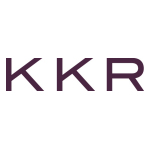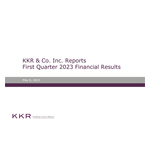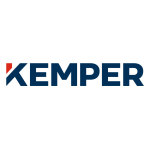Below are press releases from companys with preferred stock or baby bonds outstanding–or just of general news of interest.


KKR & Co. Inc. Reports First Quarter 2023 Results



Diversified Healthcare Trust Announces First Quarter 2023 Results

Kemper Reports First Quarter 2023 Operating Results
Armada Hoffler Announces 3% Increase in Quarterly Cash Dividend on Common Shares
Sachem Capital Provides Preliminary First Quarter 2023 Financial Results
TEN Ltd. Declares Dividend on its Series D and Series E Cumulative Perpetual Preferred Shares

Funny you should post that 2WR
Not a disciple of the church of BH they mention the name a lot when certain people write on that other site. But I do have respect for a lot of their investment accume. Do I think they’re always right? No
For example I think they own the Ashley furniture chain and I wonder how they are making money when I never see a lot of cars in the parking lot.
I read a comment by someone who has worked at Legg Mason saying he had always known Buffet to be positive on the US but now he doesn’t see that in him
NEWT – NewtekOne, Inc. Reports First Quarter 2023 Net Income of $11.7 million, or $0.46 per Basic Share
Reiterated Previously Issued Earnings Forecast for the Full Year 2023 in a Range of $1.70 to $2.00 of Earnings per Share
https://investor.newtekbusinessservices.com/news-releases/news-release-details/newtekone-inc-reports-first-quarter-2023-net-income-117-million
I usually think of annuity companies as conservative and not dabbling in the esoteric stuff, like “private assets” from Private Equity. I guess that’s not the case anymore.
Without benefit of research or any basis in fact, I have a feeling that AEL will glide upward to applause from the pumpers on The Other Website and then it’s “pop goes the weasel.” Taking in private asset money yielding 7.8% while paying out only 1.8% is good arbitrage and the temptation will be to max out. Like fish, some companies just don’t know when to stop eating. On the other hand, maybe AEL can sell out before then – its had interest.
Above my pay grade to determine what’s going on with AEL, but some of the more esoteric structures in the insurance business are getting some attention in the retirement journals. Things like the so-called “Bermuda Triangle” arrangements. (annuity company with money + private equity + captive offshore re-insurer.) I have a fear that “liquidity arbitrage” will eventually be in the news.
Are Life Insurers the New Shadow Banks? ( original paper 2/20 revised 4/23 “All authors are in the Research and Statistics Division of the Federal Reserve Board.” )
“A major finding of this paper is that the liabilities of life insurers with shadow banking businesses resemble the liabilities of investment banks in run up to the 2007-09 financial crisis.”
DYODD. Just my opinion.
BJ would like to hear more. I had been kinda shying away from insurers based on the observation that the liabilities with storms, flood and fire have gotten high risk with the frequency of hurricanes, increased flooding over large areas and the larger wildfires like New Mexico, Oregon, and California have experienced. The company my pension is with is transferring the funds to an insurance company to setup an annuity. I was thinking with the higher interest rates lately it should be good. Now you have me concerned
Charles – did you happen to see this Barron’s article? https://www.barrons.com/articles/berkshire-insurance-florida-hurricane-buffett-jain-4c608b2c To have someone like Buffet/Berkshire seeking out the assumption of more liabilities with storms, especially storms in Florida, in today’s insurance pricing environment, does seem to be an eye opener to some degree….
Berkshire Hathaway BRK.B +0.70% has increased its insurance exposure to Florida, opening it up to a possible $15 billion loss if there is a major hurricane in the state.
Ajit Jain, Berkshire’s head of insurance operations, made the comments Saturday at the company’s annual meeting in Omaha, Nebraska. Berkshire took on much of the additional exposure in April.
The Florida hurricane insurance market is one of world’s biggest for any catastrophe as insurers seek to lay off risk in the reinsurance market where Berkshire is leader. The Atlantic hurricane season, according to the National Weather Service, begins June 1 and end Nov. 30.
Florida is at high risk because of significant coastal development—plus rising construction costs—and that was underscored by the estimated $50 billion to $65 billion of insured losses last September from Hurricane Ian, which hit the state’s southwest coast. A direct hit on Tampa or Miami would have been far more costly. Global warming is believed to be heightening the risks.
A shareholder asked Jain about Berkshire’s property and casualty exposure to catastrophes.
Jain discussed Berkshire’s low exposure to property losses for most of the past 15 years because “prices have not been attractive.”
That has changed with better pricing, Jain said, and Berkshire lifted its Florida exposure in particular around April 1, a quarterly date when reinsurers take on new exposure.
“We had a lot of powder dry, and we were lucky that we kept the powder dry because April 1 suddenly prices zoomed up again a lot higher than what they were on January 1 and started to look attractive to us. So now we have a portfolio that is very heavily exposed to property catastrophe,” Jain said.
Berkshire has particular exposure to Florida, he said.
“And of course, if the hurricane happens in Florida, we could lose—across all the units, we could lose as much as $15 billion. And if there isn’t a loss, we’ll make several billion dollars as profit,” he said.
Berkshire, he said, has an enormous insurance capital base of close to $300 billion and generally is willing to lose no more than 5% from a single natural disaster such as a hurricane or earthquake.
Jain said when he called CEO Warren Buffett to ask him to boost Berkshire’s exposure by $2 billion to $15 billion, the phone call lasted less than 30 seconds. Buffett has huge confidence in Jain, who has worked at Berkshire since the mid-1980s.
Berkshire’s P&C reinsurance business has been consistently profitable under Jain’s leadership.
“I hope he calls me again,” Buffett said, referring to another potentially large reinsurance transaction.
2WR, thank you for posting this, I am a shareholder of Berkshire for decades (I use to attend the meetings in Omaha every year) and this is a very interesting development. My primary home is in Ft Lauderdale and I have not had homeowners insurance on the home for over 20+ years. The last rate quote I got was over $35K+ per year and if that was constant, I’m basically ahead $700K+. The home owner’s insurance rates have gotten out of control. I do have flood insurance and an umbrella liability insurance policy on this property (both very inexpensive). I’m sure Berkshire will hedge its reinsurance to mitigate their risk somewhat. The joys of living in Florida
You must not have a mortgage either…so your loss is 100% your loss. That’s not how I would structure things in a location prone to hurricanes, but everyone is different.
Citadel, kindly let me respond to your post, so I can clarify this important and germane issue. I have NEVER had a mortgage or taken a personal or corporate loan on the dozens of properties I currently own. I had thousands of acres of land that I have accumulated/invested in since I was very young and have sold a few select parcels to roll through 1031 exchanges. So I went from raw land (with no return unless I cut the trees or was creative) to mainly triple net lease properties with monthly income streams and no liabilities. My good friend Robert Kiyosaki (Rich Dad Poor Dad) is completely opposed to not highly leveraging up these properties (when we spoke about many of them years back) and buying more, but there is no reason to take mortgages/borrow when I or my trusts do not need too. Kiyosaki leverages everything he and his wife own and I admire his brilliance and guilefulness.
I have had this primary home that I referenced above for over 20+ years and NEVER have had insurance except National Flood Insurance and an umbrella liability insurance policy I recently took out. My commercial properties and homes/condos that I rent out do have some form of insurance. Thankfully, I have never made a claim in over 30+ years of owning dozens of these investments. Can you see why the $700K+ I have “saved” on my primary home has paid off handsomely? Yes, I took a calculated risk (as we all do each day), but the odds of any total loss(as you stated) is so minuscule, it was the right thing for me to do. I believe I’ve posted that I use to own (and built) the largest boat and RV storage facility in Ocala, Florida (sold December 2021 for tax purposes). I didn’t have insurance for 1 second, even my employees were all independent contractors and were required to provide their own insurance. My businesses are all insulated from the basic risks most companies or individuals have and I always tell my friends and associates to do their own research and make up their own mind, DO NOT BLINDLY listen to anyone.
Hoping it’s beautiful where you are, Azure
You have two separate issues about two different types of insurance. (Whether you should invest in property insurance company stocks and whether your annuity/pension is safe.) I have no definitive answers for you.
See what your employer offers you in exchange for your pension and research the carrier. IMHO, annuities are generally safe. States have done a good job in insurance regulation. FYI, in the event of a failure, there is a often a form of back-up available for policyholders from the state guaranty associations, sometimes called insurance, although it’s not. There are dollar limits to coverage.
Floods are no reason to avoid investing in insurers. Flood insurance is not covered by homeowners policies. It is provided by the Feds. Fires and hurricanes usually mean big hits to the balance sheet, knee-jerk stock drops then higher rates at the retail and wholesale insurance levels. Or the carriers pull out of the market. (I’d avoid Florida which is complicated and IMHO under prices hurricane risks. Last year 6 Florida insurers failed and a few more were close.)
AEL’s (and similar’s) fascination with private equity and “the latest” in financial engineering reminds me of insurer failures triggered by risky financial innovations. One, from the then-new junk bonds. The other, a TBTF, from bad derivative trades.
FWIW & IMHO, probably the bigger risk with AEL right now is not its failure but success. They take a bid to go private and the preferred craters over night on go-dark fears. They’ve had interest from PE.
That said, insurers are not bad to invest in once you understand how they handle risk. Berkshire Hathaway has done well over the years. Just my opinion. DYODD.